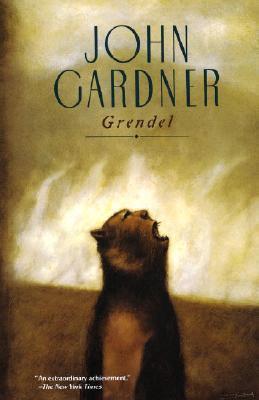Chapter 10
byChapter 10 opens with a heavy sense of despair and monotony, enveloping the narrator as they reflect on the painful and oppressive nature of existence. The phrase “Tedium is the worst pain” encapsulates the overwhelming sense of lifeless repetition that surrounds them. The natural world, with its unchanging cycles, mirrors the stagnation of life, where everything remains frozen in place. The trees stand bare and lifeless, the ground is locked in ice, and even the deer, struggling to survive, are weak and emaciated. The townspeople move through their routines like passive observers, detached from the world around them. A young priest, fervently preaching about the joys of life, stands out in stark contrast to the lack of response from the people, who listen to him dutifully, yet their faces betray no real emotion or enthusiasm. This apathy reflects the pervasive numbness that seems to govern the community, where the message of joy is drowned out by the weight of endless tedium.
The narrator’s frustration with the meaningless cycle is made more evident through their encounter with a stubborn goat. The goat, relentlessly climbing toward the narrator’s mere, represents the futile pursuit of an unattainable goal, a metaphor for the human condition. Despite the narrator’s attempts to stop it, the goat remains undeterred, continuing its climb in defiance of the warnings laid out before it. This mindless pursuit of an unreachable goal becomes a symbol of the frustration that the narrator feels—an endless struggle against forces beyond their control. In an act of aggression, the narrator hurls stones at the goat, hoping to halt its progress. However, the goat’s resilience only amplifies the absurdity of the situation, highlighting the absurdity of human efforts to control or stop something that is, in the end, futile. The goat’s unshaken determination becomes a poignant commentary on the persistence of senseless endeavors, and the violence it provokes underscores the frustration of a world filled with unyielding struggles.
As evening descends, the scene transitions to the towns of the Scyldings, where life, though industrious, remains devoid of excitement or meaning. The men go about their daily tasks, tending to their livestock, while workers hammer away at spokes, contributing to a rhythm of productivity that seems endless and devoid of purpose. The watchmen, standing guard, protect against a threat that never materializes—standing as symbols of vigilance for an enemy that does not exist. The quietness of the town is almost deafening, with conversation around dinner tables sparse and lacking in joy. The food is consumed in silence, and the people seem disconnected from one another, as if their interactions have been reduced to the mechanical acts of survival. This lack of communication and engagement paints a bleak picture of existence, where even the smallest connection or spark of joy is absent, leaving the community to drift through life without meaning or fulfillment.
The attention then shifts to the Shaper’s house, where visitors approach with a mixture of respect and apprehension. The Shaper, once a source of life and energy through his songs, now exists in a diminished state—blind, frail, and nearing death. The contrast between the vitality he once embodied and his current condition is striking, evoking a deep sense of sorrow and admiration from those around him. The people who visit him stand in reverence, but there is a sadness in their eyes, for the Shaper’s ability to inspire has waned. He no longer recognizes the reality surrounding him, caught in the fading remnants of his former glory. This moment underscores the fragility of life, where greatness can fade, and time can erode even the most powerful of influences. The Shaper’s decline serves as a metaphor for the inevitable decay that comes with age, reminding the people—and the reader—that nothing lasts forever.
As the darkness deepens, the chapter moves toward the Shaper’s death, an event that, though mourned by those around him, does not seem to fully capture the weight of his loss. The crowd grieves, but the mourning feels almost hollow, as the true depth of his artistry and impact is not fully realized by those present. The protagonist, watching this moment unfold, is struck by the sense of finality, yet they are also consumed by a deep sense of contemplation about the nature of loss. The Shaper’s death marks the passing of an era, but it also highlights the disconnect between the past and the present. The people mourn, yet they do so without understanding the true significance of what has been lost. This emotional disconnect forces the narrator to reckon with their own feelings about the passage of time and the fading of meaning. The loss of the Shaper forces the narrator to confront the decay not only of the physical world but also of the spiritual and cultural elements that once defined it.
As the chapter draws to a close, a sense of dread and resignation fills the air. The death of the Shaper becomes the turning point, a symbolic death of hope and creativity, leaving behind a world filled with uncertainty and emptiness. The protagonist’s musings shift toward existential questions about life and meaning, now more focused on the inevitability of nothingness and the cyclical nature of existence. The dread that accompanies this realization lingers, making it clear that time continues to march forward, indifferent to the struggles and losses experienced by individuals. The chapter encapsulates the feeling of being trapped in a world that offers no escape from the monotony and decay, where even the greatest forces fade into obscurity. The existential musings of the protagonist bring the story to a somber and unresolved conclusion, leaving the reader to contemplate the futility of life’s struggles and the inescapable passage of time.

